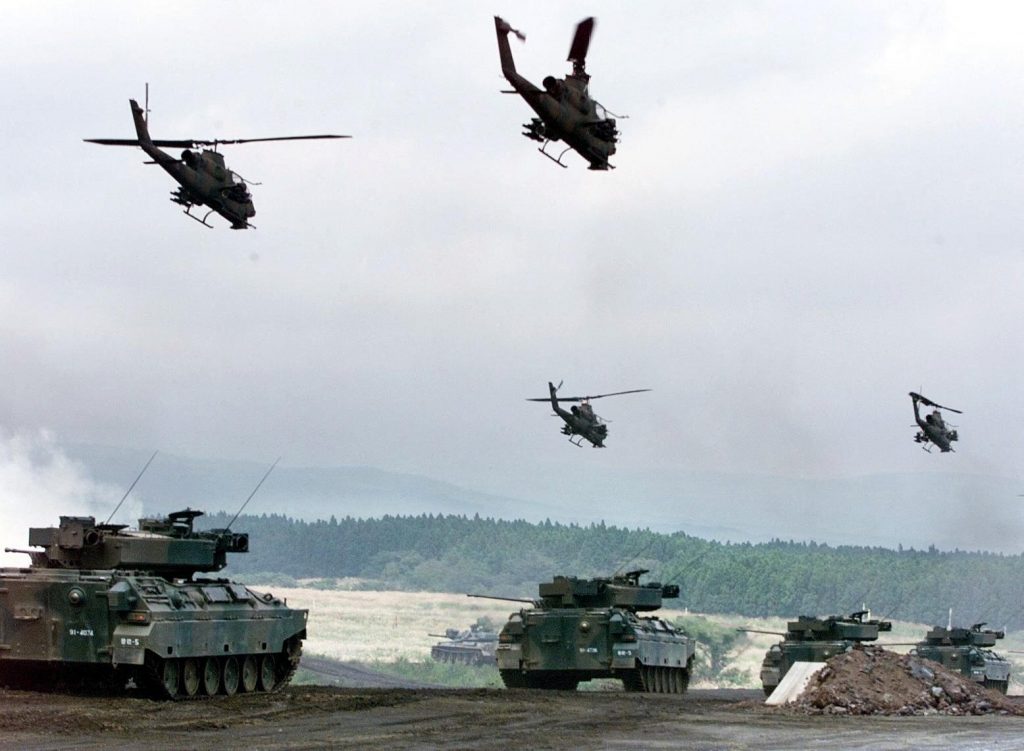
- ARAB NEWS
- 09 Jul 2025

TOKYO: Activities by the Japanese Self-Defense Forces based on the Japan-US alliance were expanded drastically to cover areas including the Indian Ocean and the Middle East, on top of the Far East, in the course of the US-led war on terrorism after the Sept. 11 terror attacks on the United States 20 years ago.
During the war, the Japanese government dispatched Maritime SDF vessels to the Indian Ocean to refuel warships from countries such as Britain and France, as well as the United States, while a permanent law enabling the dispatch of the SDF abroad was established.
The Sept. 11, 2001, attacks also shocked US forces in Japan. After the attacks, a US aircraft carrier suddenly departed from the US Navy’s Yokosuka base in Kanagawa Prefecture, just south of Tokyo, and an MSDF destroyer, in a very rare move, escorted the flattop.
A senior official of the MSDF who knows well about the situation at the time said: “Yokosuka is close to Tokyo International Airport at Haneda. The US aircraft carrier sailed out of the base to avoid possibly becoming a target of a suicide attack using an aircraft.” The flattop would have been stuck at the base if it had remained there, the official noted.
Soon after the terror attacks, the United States urged its allies to decide whether they would support the war on terrorism. The United States sought Japan’s participation in the Operation Enduring Freedom in Afghanistan, urging it to “show the flag.”
The government of then Japanese Prime Minister Junichiro Koizumi decided to assist, as part of the OEF, operations to block the maritime transport of weapons and drugs by international terrorist group al-Qaeda.
Japan’s Diet, or parliament, enacted a special law on the fight against terrorism in October 2001. Based on the law, a destroyer and a replenishment vessel of the MSDF were sent to the Indian Ocean the following month. The ships covered wide areas, including the Persian Gulf.
“The Japan-US alliance became strong as the SDF’s areas of operations expanded, with Japan playing its role as a member of the international community,” Gen. Koji Yamazaki, chief of staff at the Defense Ministry’s Joint Staff, said at a press conference Thursday, also referring to the dispatch of SDF troops to Iraq to help its postwar reconstruction.
At a press conference Friday, Defense Minister KISHI Nobuo said, “The Defense Ministry and the SDF, building on their activities to date, will contribute further to the international community by making good use of our country’s strength.”
Meanwhile, there were concerns that the SDF’s logistic support for the US military’s operations at the time could result in the violation of the Japanese Constitution’s pacifist Article 9, which bans Japan from being integrated with the use of force by a foreign country.
There was a suspicion at the time that fuel given to US warships from the MSDF was used for the war on Iraq.
In 2008, Nagoya High Court in central Japan ruled that the Air SDF’s transportation of armed troops from multinational forces during the mission in Iraq was unconstitutional, concluding that the act was integrated with the use of force by foreign countries.
In 2015, the government of then Prime Minister Shinzo Abe had national security laws enacted, including a permanent law on contributions to international peace, which allows the SDF to offer logistic support for multinational forces abroad.
The law specifically allows the dispatch of SDF troops overseas when needs arise to provide foreign forces with support in replenishment and transportation if there are relevant UN resolutions or consent from countries hosing the SDF.
JIJI Press